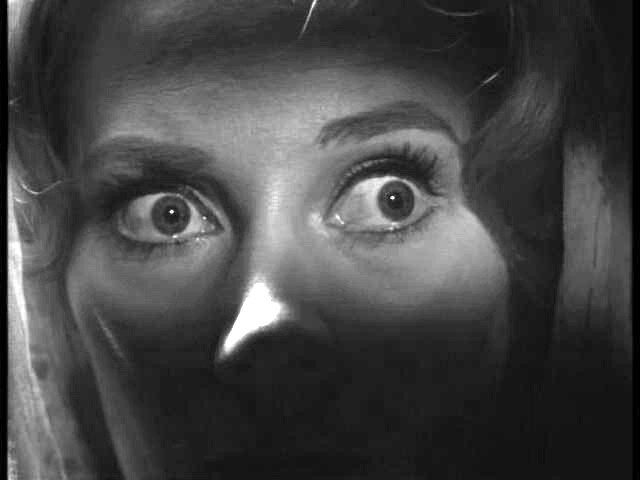Terrors and Teratophobics

In a world where anxiety is a disorder, is it crazy to be afraid of a dragon?
In a world where anxiety is a disorder, is it crazy to be afraid of a dragon?
Allow me to share with you a vignette. During my residency, I spent 3 months working on a consulting psychiatry team in a general hospital. We were the doctors who went to the non-psychiatric wards in the hospital, particularly the internists' and surgeons' wards, and saw their patients when there was suspicion of a mental health issue at play. A lot of our time was spent explaining to our colleagues that just because someone is crying doesn't necessarily mean that they need an antidepressant pill, but we also spent a lot of time talking to patients and deciding, along with them, whether their anxiety was normal or pathological. I vividly remember being asked to evaluate a woman who the surgeons were giving high-dose anti-anxiety medications -- potentially addictive and dangerous medications, in case you aren't familiar with them -- but who was still complaining of persistent and horrific perpetual anxiety. Assessing the patient took me all of 5 minutes. She'd been admitted for surgical complications, which had included respiratory failure necessitating a tracheostomy. She was in chronic pain, suffering from a slowly-healing wound infection, and had the constant subjective feeling of being unable to breathe. I also couldn't help but notice that she was both nearly deaf, and had no hearing aid with her, and nearly blind since she had lost her glasses weeks earlier and nobody had thought to try to get her another pain. The real kicker was that when I asked her how she thought I could help her, she told me that she'd finished her novel and had nothing to do in hospital, and all she really wanted was for someone to bring her another book so she wouldn't be so bored. Suffice it to say that I patiently explained to the surgeons that she had ample reason to have anxiety, and certainly didn't have what we'd call a "primary anxiety disorder," and that maybe what she needed most was to be seen by an audiologist. To my knowledge, the surgeons never did manage to get her that hearing aid.
The point of that story is simply that, contrary to what some people seem to think in Western culture, there are a lot of situations where anxiety is perfectly normal. Medicine distinguishes between "fear," meaning anxiety which has an understandable cause, and "pathological anxiety," which is most commonly worry or fearful anticipation about the future or possible horrible future events which is excessive, unproductive, interferes in one's activities, or is wholly inappropriate for one's culture. If you feel like you're unable to breathe, all day, every day, then it's perfectly normal for that to be terrifying. In more day-to-day terms, a villager who's afraid of goblins doesn't necessarily suffer from an anxiety disorder; a villager who's so afraid of goblins that they refuse to step outside, and therefore can't earn money or get food, probably has an anxiety disorder, unless of course the danger from the goblins is precisely as real as they think and their life really would be in danger if they went out. If the fear is very real, very reasonable, and very adaptive, then it's not a disorder or a diagnosis, and not even necessarily a weakness.
In real life, I hate snakes. I won't go near a live one, but I've gotten a lot better than when I was a kid, when I wouldn't even look at a picture of one. To qualify as a "phobia" in the medical sense, my fear would have to be unreasonable, maladaptive, or excessive. If I lived in the Amazon, then it would be perfectly reasonable for me to be afraid of snakes every time I set foot out of doors, but I live in Canada, where the only poisonous snakes are behind glass walls in zoos and where the weather for a third of the year would kill them. My fear has had an impact on my life and happiness, in so far as that I love cheesy monster movies but I won't watch, for example, Anaconda. Does that qualify as an impact on my functioning if I still go to work, fall in love, and go see Pacific Rim in theatres? In a strict diagnostic sense, I don't suffer from a phobia, I just have a fear... an evolutionarily advantageous fear, albeit one that's of limited utility in an urban setting.
I talk about all this because fear is a funny thing when it comes to adventurers. Our characters cheerfully rush in to situations that we, in reality, would never dare approach. For many gamers, the only reason their characters would be afraid of anything is because they might get a bonus feat or something if they have a phobia listed on their sheet. Right up until level 20, though, it remains normal to be afraid of a lot of things, be it dragons, fire, clowns, or whatever is appropriate to the character's background, temperament, and weaknesses.
Having anxiety doesn't mean you're crazy. Like everything else in life, whether or not anxiety is a good thing or not depends entirely on how much of it you've got and whether it helps you or hinders you in your work, play, and love.
Four years ago, Dr. Eris Lis, M.D., began writing a series of brilliant and informative posts on RPGs through the eyes of a medical professional, and this is the one that appeared here on July 28, 2013. Lis is a physician, gamer, and author of the Skirmisher Publishing LLC OGL sourcebook Insults & Injuries, which is also available for the Pathfinder RPG system.






